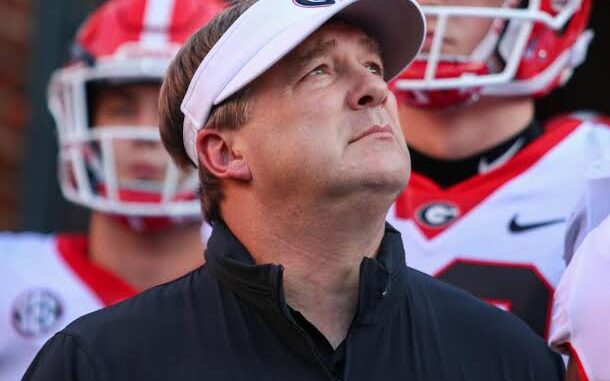
Why Kirby Smart Assigns Responsibility for the Georgia–Florida Rivalry Debacle
ATHENS, GA — The storied Georgia–Florida rivalry has long been a defining fixture in college football, drawing national attention each fall as two Southeastern Conference (SEC) powerhouses clash in a battle steeped in tradition, pride, and high stakes. Yet in recent years, the rivalry has faced scrutiny — not just for the outcomes on the field, but for how it’s structured, scheduled, and handled. Georgia head coach Kirby Smart has not shied away from addressing these issues, recently attributing responsibility for what he considers the rivalry’s diminishing competitive balance and logistical challenges.
During a candid press appearance last week, Smart expressed his frustration over the current format of the annual Georgia–Florida game, which has been held in Jacksonville, Florida, since 1933 with only two exceptions. While the neutral-site tradition has its passionate defenders, Smart argues that the setup puts Georgia at a disadvantage both competitively and in recruiting.
“It’s not just about the game on the field,” Smart said. “It’s about the long-term impact on the program. We lose a key recruiting weekend every other year when we travel to Jacksonville, while other programs get the benefit of hosting high-profile recruits during major home games.”
Smart’s comments are not new but have gained renewed attention following Georgia’s recent struggles in the rivalry, including a particularly disappointing loss last season that cost the Bulldogs a shot at the College Football Playoff. While Smart did not blame players directly, his remarks pointed toward institutional inertia, the SEC’s scheduling policies, and what he called a “lack of strategic foresight” from decision-makers as key contributors to the situation.
He further highlighted how other elite programs have been able to use marquee rivalry games as recruiting showcases — an opportunity Georgia forfeits by playing at a neutral venue every other year. “When you look at Alabama-Auburn, Michigan-Ohio State, those programs are able to showcase their facilities and game-day environments,” he said. “That’s a powerful recruiting tool, and we’re missing that.”
Smart’s candid remarks have sparked debate among fans, alumni, and college football analysts. Some argue that the neutral site preserves tradition and brings economic benefits to both fanbases, while others support Smart’s push for a home-and-home format that would alternate games between Athens and Gainesville.
The University of Georgia athletic administration has acknowledged Smart’s concerns and indicated that the school is open to future discussions about the rivalry’s structure. SEC officials, however, have been non-committal, citing contractual obligations and the logistical complexities of altering one of the sport’s most iconic fixtures.
As Georgia continues its pursuit of national dominance under Smart’s leadership, the head coach remains focused not only on winning games but also on shaping the long-term trajectory of the program. “We owe it to our players and our fans to compete on equal footing,” he concluded. “That means asking hard questions and being willing to adapt, even when it comes to tradition.”
Whether or not changes will be made in the near future, one thing is clear: Kirby Smart is no longer willing to remain silent about the factors he believes are holding his program back — and he’s determined to ensure the Georgia–Florida rivalry evolves with the times.
Leave a Reply